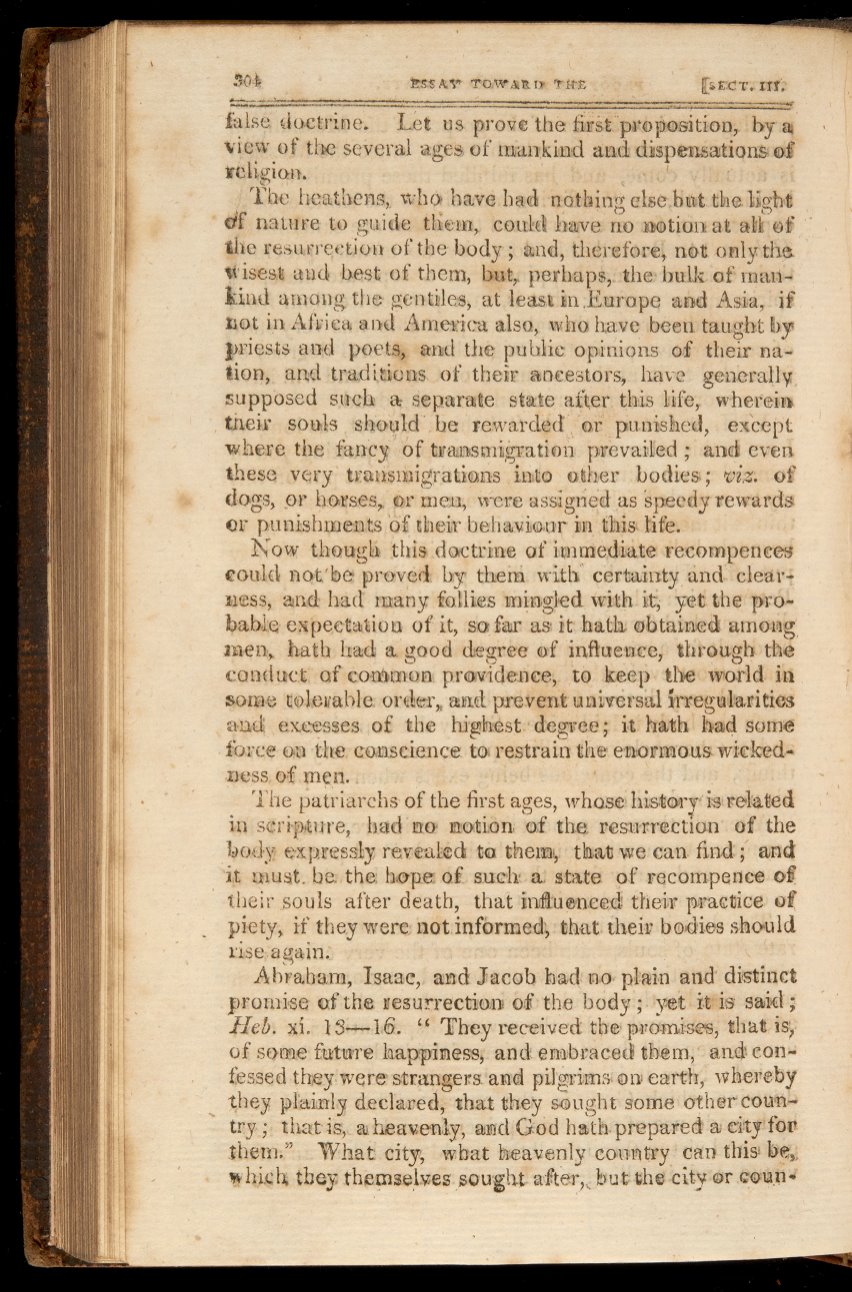

rSS
AS"
TO,tI*.LR
1t
'rt.-tr.
[sECT.
lit
false
doctrine.
Let
us
prove
the
first
proposition,
by
a
view
of
the several
ages
of
mankind
and dispensations of
religion.
The
heathens,.
whO
have
had
nothing
else
befit
the.
light
elf
nature
to
guide
there,
could have
no
notion at
all
of
the resurrection
of
the body;
and,
therefore;
not
only
the
%
isest
and
best
of
them,
but,
perhaps,.
the
bulk
of
man
-
kind among the
gentiles,
at
least
in.Europe
and
Asia,
if
not
in Afiica
and America
also,
who have
been
taught
by
priests and
poets, and
the public opinions
of
their
na-
tion, and
traditions of their
ancestors, have generally
supposed such
a
separate state after
this
life,
wherein
their
souls should be
rewarded or punished, except
the
fancy
of transmigration
prevailed
;
and
even
these very
transmigrations
into
other bodies;
viz.
of
dogs,
or horses
or
men, were assigned as
speedy
rewards
or
punishments
of
their
behaviour
in
this
fife.
Now though
this
doctrine
of
immediate recornpences
could
not'be
proved
by
them with certainty
and
clear-
ness,
and
had many
follies
mingled with
it,
yet
the
pro
-
bable
expectation of
it, so far as it
bath,
obtained
among
men,
hat]
had
a
good
degree of
influence,
through the
conduct.
of
common,
providence, to
keep
the
world in
some
tolerable order,
amt prevent universal irregularities
and
excesses.
of
the highest
degree; it
bath had
some
force
on
the.
conscience
to restrain the enormous
wicked-
"less.
of men..
The patriarchs of
the
first ages, whose history.
is
related
in
scripture,
had
no notion of the resurrection of
the
body expressly revealed to
them,
that
we
can
find; and
must. be
the:
hope
of
such
a.
state of
recornpence
of
their souls
after death,
that
influenced
their
practice
of
piety,
if
they were
not
informed;
that
their bodies should
rise
again.
Abraham, Isaac,
and
Jacob
had
no
plain
and distinct
promise of the resurrection of
the body
;
yet
it
is said
;
.
Ieb.
xi.
13
---16.
"
They received thep-
romises,
that
is;
of
some
future happiness, and embraced
them,-
and con-
fessed
they were
strangers
and
pilgrims.
on earth,
whereby
they plainly declared,
that
they
sought
some
other
coun-
try
;
that
is,
a
heavenly, and
God
hath.
prepared a
city for
then." What
city,
what heavenly country can
this
be,,
*high,
they themselves
sought
after,.,
but
the
city or
coup-

















